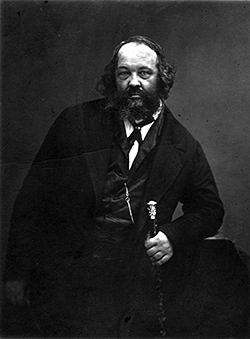
156 minutes / Color/B&W
French / English subtitles
Closed Captioned
Release: 2017
The Russian Revolution. The Spanish Republic. The Paris Commune. The Ukrainian revolution. The Mexican Revolution. From the late 19th century until World War II, anarchists played a key role in these events and in social movements that would shape the world we live in.
Yet these contributions are largely forgotten. Anarchists were considered so dangerous that forces of the state slaughtered them by the thousands, while they were betrayed, arrested, and killed by their erstwhile revolutionary allies.
Anarchy is often used as a synonym for chaos and destruction – with anarchists seen as black-clad nihilists fomenting violence at peaceful protests. But NO GODS NO MASTERS reveals the far more complex history of a viable social system and the men and women who devoted themselves to making it a reality.
NO GODS NO MASTERS is a sympathetic history of a century of anarchist thought and practice, featuring leading historians and essayists, dramatic archival footage, and lively commentary that keeps the subject engaging. Divided into sections each based on key events, NO GODS NO MASTERS is a comprehensive yet accessible introduction to the multi-faceted global anarchist movement – once a mass force that sought not to seize political power, but to utterly destroy it.
The three episodes of NO GODS NO MASTERS offer an in-depth historical perspective on the anarchist movement, but also make implicit links to the present. Anarchism arose in a period of inequality and social unrest. The words “war on terror” were first applied to the late 19th-century fight against anarchists. Despite the diversity of thought among anarchists, the popular perception has remained remarkably static from opponents on both left and right – seeing them largely as violent nihilists. NO GODS NO MASTERS goes a long way towards rectifying that view, and raises the question of whether anarchist thought could appeal to a new generation of activists too.

This episode of NO GODS NO MASTERS shows how anarchism emerged from the horrendous social conditions facing workers at a time when industrialization was, paradoxically, providing better hygiene and social standards – for some. In an era in which the life expectancy of workers was 30 years—most of those spent in misery—it is no surprise that new approaches would arise.
Tracing the history of early anarchist thought from Pierre-Joseph Proudhon, who declared that property is theft, to Mikhail Bakunin, who advocated violent revolution to destroy the state completely, THE PASSION FOR DESTRUCTION follows the expansion of the anarchist movement from Europe to America. Anarchists would spread their influence through general strikes – a form of action they developed – and collective action within the trade union movement, which was concerned with much more far-reaching change than working conditions. The film also offers an in-depth look at the Haymarket Affair, which saw four anarchists wrongfully hanged for a bomb that went off during a demonstration against police violence, and which would deeply influence anarchist activists such as Emma Goldman.
By the early 20th century, anarchists in France were a powerful enough constituency to draw the French president to an event. In England, they were considered so dangerous that when they occupied a London building, it took the full force of heavy artillery and 800 police officers to dislodge them.
LAND AND FREEDOM looks at differing strains within the anarchist movement during the peak of its popularity – when it seemed, for a time, that the dream of anarchist revolution might come to pass. This was an era of social ferment and experimentation, including communal living, nudism and gender equality; educational reform designed to usher in the development of “the new man”; the resurgence of propaganda of the deed in the guise of violent robberies and shootouts with police; and the participation of anarchists in revolutions from Mexico to Russia.
While it seemed that the dream of an anarchist revolution was within grasp, World War I would put an end to popular revolt, as young men went to the front.

IN MEMORY OF THE VANQUISHED traces the appropriation of anarchism by communists, and of anarchist symbolism by fascists in France, Italy, and Spain, and takes an in-depth look at the Spanish Revolution of 1936, which was heavily anarchist in Catalonia. Remarkable newsreel footage from Barcelona shows smoothly functioning life in a city run largely on anarchist principles, with collectively run arts organizations and companies, and without bureaucracies and bosses. But this too, would not last, as anarchists paradoxically entered the republican government in order to face Franco’s fascists. The anarchist militias would end up being absorbed into the republican troops.
With the defeat of the Spanish Republic, and squeezed between Stalinists, fascists, and capitalists, anarchists found themselves in disarray, with nowhere to turn politically as the Second World War loomed. The anarchist movement seemed doomed. But was it?
"Examines the rise and decline of anarchism, from its birth in France to its crushing defeat during the 1930s Spanish Civil War... The documentary covers anarchism as an immigrant issue, the rise of trade unions, and the role of women... Political junkies and history buffs will appreciate. Recommended." —Video Librarian